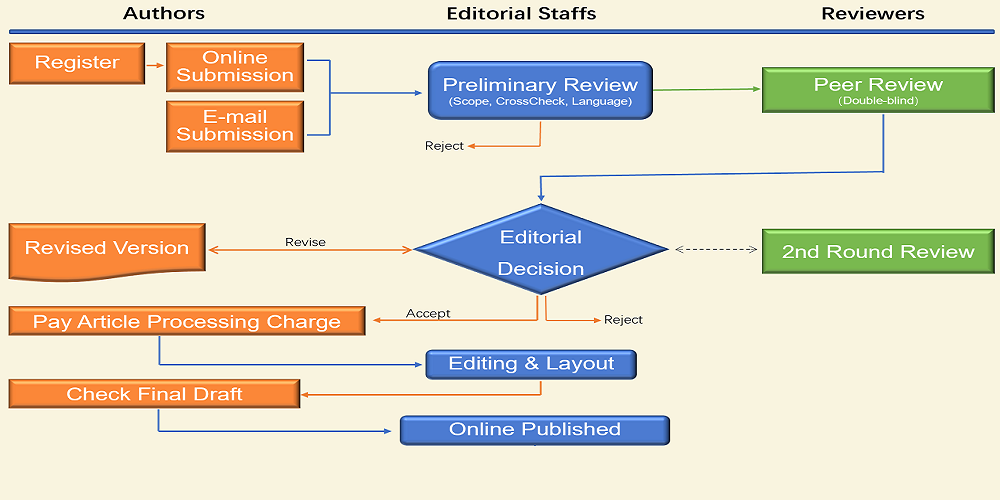Review Process and Policy
Peer Review Policy
Reviewers play a central role in scholarly publishing. Journal uses double-blind peer review process, which means that both the reviewer(s) and author(s) identities are concealed from the reviewer(s), and vice versa, throughout the review process. This means that the reviewer(s) of the paper won’t get to know the identity of the author(s), and the author(s) won’t get to know the identity of the reviewer(s). Peer review helps validate research, establish a method by which it can be evaluated, and increase networking possibilities within research communities. Despite criticisms, peer review is still the only widely accepted method for research validation.
All submitted papers will be reviewed by double blind peer review process which may take minimum 01 to 03 weeks from the date of submission. We are advising to all the author(s), do not submit same paper to the multiple journals. Author(s) should wait for review status of paper.
Peer Review Process
Peer review is the system used to assess the quality of a manuscript before it is published. Independent researchers in the relevant research area assess submitted manuscripts for originality, validity, and significance to help editors determine whether a manuscript should be published in the journal.
Peer review is an integral part of scientific publishing that confirms the validity of the manuscript. Peer reviewers are experts who volunteer their time to help improve the manuscripts they review.
When a manuscript is submitted to a journal, it is assessed to see if it meets the criteria for submission.
Each manuscript is checked for plagiarism, and assessed carefully to determine if it fits the aims and scope of the journal. If it does, the editorial team will select potential peer reviewers within the field of research to peer-review the manuscript and make recommendations.
All submissions are subject to peer review. The publishing house will send manuscripts to outside reviewers selected from an extensive database.
Upon submission, authors are encouraged to submit names of reviewers who they deem appropriate to review their paper. Authors may also indicate persons to whom they do not wish the manuscript sent for review. In most cases, articles will be reviewed by at least two reviewers as well as the editorial staff to determine validity, significance, novelty, and potential impact on the field of contents and conclusions. The selection of reviewers will be made on the basis of expertise, impartiality, and equal distribution among the available experts, regardless of geographic origin of the manuscript or locations of the reviewers.
On their recommendation, editors will accept, accept with revisions, or reject a manuscript.
To make good judgments, peer reviewers evaluate the content for scientific value and originality, to see that articles adhere to general scientific practice as well as the journal’s specific guidelines, and to check that author have referenced correctly. The peer reviewer will look closely at the methodology and the validity of the data, and consider the ethical approach. They will then recommend changes. Authors will be advised within the shortest possible time whether their paper is accepted, requires major or minor revisions, or is rejected. All necessary efforts will be made to ensure a timely review process.
Authors should note the time from submission to final decision can be shortened by a timely return of a revised manuscript when revision has been requested.

